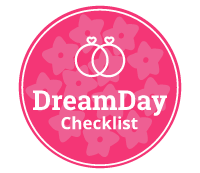body {
font-family: Arial, sans-serif;
margin: 20px;
padding: 0;
}
h2 {
color: #333;
border-bottom: 2px solid #ccc;
padding-bottom: 5px;
margin-bottom: 10px;
}
p {
line-height: 1.6;
}
img {
max-width: 100%;
height: auto;
margin-bottom: 15px;
}
Planning a wedding is an exciting journey filled with decisions, dreams, and details. One question that often arises is, “How far in advance should I start planning my wedding?” There’s no one-size-fits-all answer, as each couple and celebration is unique. Let’s explore some key considerations to help you determine the ideal timeline for your special day.
In this article you will find:
Engagement Period
Typically, the engagement period lasts between 12 to 18 months, giving couples ample time to plan their wedding. Use this time to envision your dream event, discuss budget and guest list, and consider important factors like the season and location.

Setting the Date
Choosing a wedding date is a crucial first step that can impact many other decisions. Popular venues and vendors book up quickly, especially during peak wedding season (spring and summer). If you have a specific date or location in mind, consider starting your planning process 18 to 24 months in advance.


Vendor Booking Timeline
Secure essential vendors early to ensure you get your top choices. Book your venue, caterer, photographer, and florist at least 12 to 18 months before your wedding day. For in-demand vendors, such as renowned photographers or popular bands, consider reaching out even earlier.

Dress and Attire
Shopping for your wedding attire can be a memorable experience, but it’s wise to start early. Brides should begin looking for their dress 9 to 12 months before the wedding, allowing time for alterations. Grooms and the wedding party should also start the attire selection process well in advance.

Finalizing Details
In the final months leading up to your wedding, focus on finalizing details such as the timeline, decor, and guest accommodations. Sending out invitations 6 to 8 weeks in advance gives guests ample time to RSVP and makes it easier for you to plan seating and catering.

Last-Minute Checklists
As the big day approaches, create a last-minute checklist to ensure you haven’t overlooked any crucial details. Confirm all vendor agreements, create a day-of timeline, and pack emergency kits for any unexpected mishaps.

